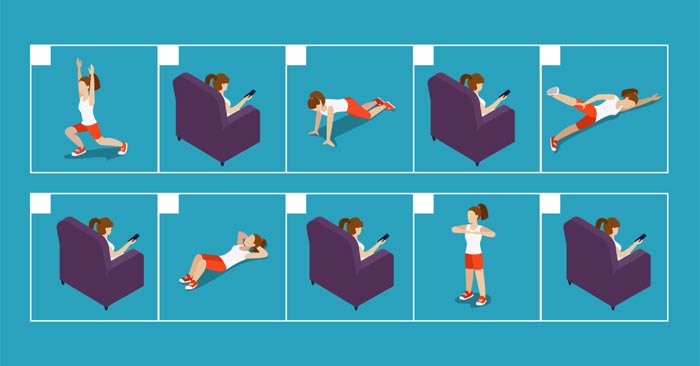Do you really need rest days between workouts?
Rest and recovery are not the same thing. Do you really need rest days when you schedule a workout? Let's find out!

Rest days are a standard part of any training program, but they're not the only way to avoid overtraining. Contrary to what many beginner tips say, you don't always need a rest day after every workout, and you can even train seven days a week if you like. But once you start breaking the rules, you'll need to work harder to make sure you're giving yourself enough recovery time.
Recovery is important
Most strength training programs either work your entire body and then give you a rest day the next day, or they ask you to split your workouts so that each muscle group gets a day of rest—for example, your arms get a rest on leg day. The idea is to let each muscle recover from a workout before you ask it to do the same movement again, and rest days are a valid way to ensure you have time to recover.
But not all activities work this way. Runners, for example, typically run every day and may only take one or two real rest days per week. But within that framework, they'll alternate days of hard running (like tempo runs, hill runs, or long runs) with days of easy running that are less challenging to the body. The easy days may not be 'rest,' but they count as recovery time for an experienced runner.

Other sports may have alternating workouts, but no one is expected to train every body part to exhaustion every day. Even when elite athletes train every day, which we find amazing, it's because our "hard" is their "easy." They have enough training scheduled by their coaches to progress in the right direction with minimal risk of injury.
No matter what your schedule looks like, rest days are a great way to help you pace yourself. Running too hard, if you're not used to it, can lead to tendonitis and other injuries. And too much exercise of any kind can lead to a syndrome called overtraining, where your body develops flu-like symptoms and sleep disturbances because it can't keep up with the demands.
Rest day is useful in training
Taking a day off after a hard workout isn't the only way to avoid overtraining. However, there are a few reasons why this is a useful general rule:
- Resting every other day means that only half of the days will be hard workouts . The other half will be rest days or easier days, so the schedule will help you control the total workout intensity.
- Interval training is easy to do . You don't have to wonder if your recovery is easy enough or remember which exercises work which muscles. You just stay home on non-workout days and know you're on track.
- Mentally, it's easier to stick to an exercise routine when you enjoy it . Hard workouts aren't always fun, and you may need to motivate yourself to try something really hard. It's okay if you don't feel like doing it every day. Having some easier, more relaxing days can help you stick to your schedule.
- Routines that include rest days are easier to schedule into your life . People who work out six days a week have to fit those workouts around everything else going on in their lives. Having more rest days each week means you have more time for work, school, family, hobbies, and whatever else.
If you enjoy all of your workouts, even the hard ones, slowly add more hard days to your schedule. If you feel okay with that, keep doing it! But if you get sore or tired, listen to your body and take rest days.

Recovery doesn't necessarily mean complete rest.
Some people prefer the term 'recovery' to 'rest day,' because complete rest isn't necessarily your goal. After all, bringing a fork to your mouth is a similar action to curling your biceps, so if you've just lifted heavy weights, can you not eat? Obviously, some activities are okay on a rest or recovery day.
This is where you have to calibrate your own sense of effort. If you're new to exercise and just did some heavy squats one day, cycling around West Lake probably isn't a great choice for the next day. But if you cycle to work every day, you can continue to do so even on your 'off' days.
Overall, resting between workouts may or may not be beneficial depending on your body condition and time.